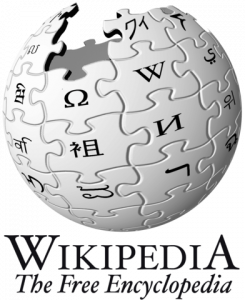 When you have a question, do you go online to look for answers? If you are like most people these days, you do. We also pick up news and ideas from social media posts, Twitter feeds, sites that we browse for fun and all the other sources of information that fill the online world. As a consumer of online information, you need to be aware of its accuracy and importance. For example, if you are searching for health information, you would like to have some confidence in what you find.
When you have a question, do you go online to look for answers? If you are like most people these days, you do. We also pick up news and ideas from social media posts, Twitter feeds, sites that we browse for fun and all the other sources of information that fill the online world. As a consumer of online information, you need to be aware of its accuracy and importance. For example, if you are searching for health information, you would like to have some confidence in what you find.
Have a look at the link below from Camosun College’s library. Read the Overview page and explore the links (at the bottom left of the page) to Binghampton University and to the CRAAP test. Then return to this page to continue.
Camosun College Web Evaluation Overview
 Do you use Wikipedia? It can be a great source of information but its users need to remember that anyone can post anything to the site. The information that you read may or may not be accurate. The idea of Wikipedia is that lots of people use it, contribute to it and correct it, so that dubious information tends to get corrected. Not everyone agrees with this theory. Here’s a link to a Camosun College page about Wikipedia. Who is the Wikipedia skeptic/TV-personality quoted on the page? Optional: read through the two opinion articles linked on the left side of the Wikipedia page.
Do you use Wikipedia? It can be a great source of information but its users need to remember that anyone can post anything to the site. The information that you read may or may not be accurate. The idea of Wikipedia is that lots of people use it, contribute to it and correct it, so that dubious information tends to get corrected. Not everyone agrees with this theory. Here’s a link to a Camosun College page about Wikipedia. Who is the Wikipedia skeptic/TV-personality quoted on the page? Optional: read through the two opinion articles linked on the left side of the Wikipedia page.
Camosun College Reference Sources & Wikipedia
Fact Checking
Beyond assessing websites that you visit for reliability and accuracy, you can check out intriguing news items and stories at fact-checking websites, such as the International Fact-Checking Network. One of the best known sites is Snopes.com. Rather than looking for news, these sites try to check the facts behind stories that circulate both online and through conventional news outlets. (Note that Snopes does have a lot of ads – do not follow ad links or download any items.) Explore some of the stories under the Snopes Fact Check tab or look up an issue that interests you.
After you have explored the links on this page, you can complete Assignment 5.3.1 on the Module 5 Assignments page.